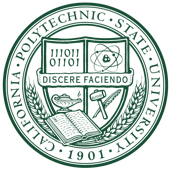Dr. Martine Lappé is an Assistant Professor of Sociology and Science, Technology, and Society in the Department of Social Sciences at California Polytechnic State University, San Luis Obispo. She is a medical sociologist and feminist science and technology studies scholar. Dr. Lappé earned her PhD in sociology from the University of California, San Francisco and was a Postdoctoral Fellow at the University of California, Los Angeles Institute for Society and Genetics and Columbia University’s Center for Ethical, Legal, and Social Implications of Psychiatric, Neurological, and Behavioral Genetics, before joining the faculty at Cal Poly.
Dr. Lappé’s research focuses on lived experiences of health, science, and medicine. She is the Principal Investigator of a five-year Career Development Award (K99/R00) from the National Human Genome Research Institute (NHGRI)’s Ethical, Legal, and Social Implications (ELSI) Program. The study, titled “Behavioral Epigenetics in Children: Exploring the Social and Ethical Implications of Translation,” uses qualitative research methods and traditions in science studies and biomedical ethics to examine how epigenetic research is influencing understandings of child development and social policies related to pregnancy, parenting, and inequality in the United States (Grant Number R00HG009154). The grant is part of Dr. Lappé’s ongoing research on the consequences of genomic and epigenetic knowledge as it is produced and taken up across laboratories, clinics, and communities.
Dr. Lappé is also currently completing the book, Anticipating Autism: Science, Uncertainty, and Care in the Post-Genomic Era. The book explores the meanings of autism for families, scientists, and policy makers, and examines the impacts of autism science and activism on experiences of pregnancy and parenting today.
Dr. Lappé has taught courses on the sociology of health and illness, science and technology studies, gender and women’s studies, and qualitative research methods. Her scholarship is published in the journals Social Studies of Science, BioSocieties, New Genetics & Society, Pediatrics, Journal of Medical Ethics, and the books Advances in Medical Sociology: Genetics, Health and Society and Achieving Justice in Genomic Translation: Rethinking the Pathway to Benefit, among others.
- Website
- @martinelappe
- Article Feed
- Joined


